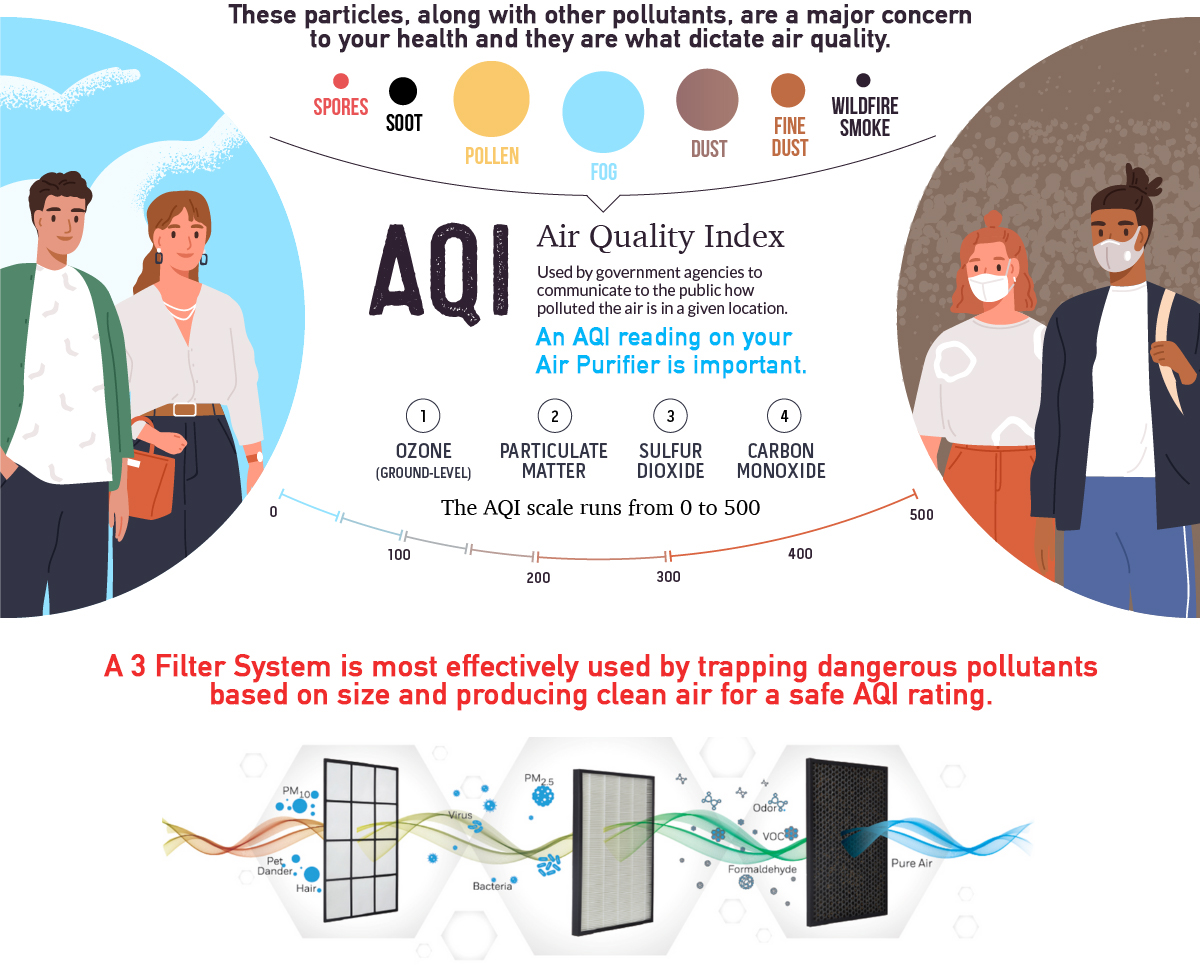Even though every type of pollution is disastrous, air contaminants represent about 66% of the total deaths alluded to mass contamination. Besides the fact that toxins move faster when airborne, it’s very easy to get exposed to air pollution. For example, the coronavirus.
A study conducted by the Environmental Protection Agency (EPA) Total Exposure Assessment Methodology concluded, "studies found levels of about a dozen common organic pollutants to be 2 to 5 times higher inside homes than outside, regardless of whether the homes were located in rural or highly industrial areas." Further research proved an even greater risk of indoor pollution because, "people spend approximately 90 percent of their time indoors. Thus, for many people, the risks to health may be greater due to exposure to air pollution indoors than outdoors."

Just breathing in contaminated air can result in severe health complications – thus, aiming to reduce the amount of airborne pollution is critical for human survival. Breathing in clean air has many benefits, including:
Enhanced Cognitive Health:
Much like every other part of the human body, the brain depends on oxygen to function properly. When the air we breathe is polluted or filled with toxins, however, the brain can be negatively impacted. Studies have shown that long-term exposure to particulate air pollution is a contributing factor to cognitive decline. Studies on mice have also shown that similar exposure can lead to depression, already one of the most common mental health ailments. By keeping your home air clean, you can help to maintain the integrity of your brain and prevent some of the cognitive decline associated with common forms of air pollution.
Reduced Risk of Diabetes:
Much like heart disease, few people would think that poor air quality could contribute to diabetes. However, research has found that the risk for type 2 diabetes is increased by both gaseous and particulate air pollution. Of course, there are many other risk factors for diabetes, including genetic inclination, smoking, and diet. However, keeping the air in your home clean and contaminant-free can help to lower your overall risk for this disease.
Reduced Risk of Heart Disease:
When thinking of how air quality impacts human health, few people consider the heart as an organ that can be damaged by airborne toxins. Several studies, however, have established a strong link between long-term exposure to particulate air pollution and cardiovascular disease. Keeping your home air clean won’t eliminate this risk, as outdoor air is beyond your control but having clean air at home can limit exposure to particulate pollution.
Gets Rid of Allergens and Asthma:
Two of the deadliest issues that low IAQ [Indoor Air Quality] bring to the table for children are allergens and asthma. There is no way of detecting particulates of dust, dirt, smoke, and pollen which often settle on the furniture in your home. By getting rid of these types of airborne particles, you can reduce or eliminate their ill-effects on children and help them maintain a healthy respiratory system.
Increase longevity:
According to a study published in the New England Journal of Medicine, clean air is worth five months of your life — That’s half a year! Don’t you think that’s worth investing in sustainable practices that give you maximum return on your investment? – Not to mention the increased life expectancy as a result. What we mean is that you can work towards improving the IAQ of your home by taking the help of air purifiers.
Active lifestyle:
Unbelievably, indoor air pollution is a real threat. IAQ may not be as life-threatening as outdoor air quality, but it has degraded over decades.
Today, in metropolitan and rural areas, IAQ is a health hazard due to allergens and toxins circulating in facilities. One of the perils of indoor air pollution is that people feel less healthy. Children bear the brunt most often, inhaling low-quality air from an early age. This causes them to have constant headaches, tiredness, and nausea. Clean air improves their lifestyle and promotes activeness. They feel more energetic by inhaling air that is devoid of toxic matter. This also benefits their respiratory and cardiovascular systems eventually.
Besides the health conditions listed above, clean air also has a positive effect on animal and plant life around the planet. Moreover, studies have demonstrated that highly polluted areas of the world have a social disadvantage. This means that solving the pollution problem may also help address social issues, potentially reducing crime and poverty rates across the board.